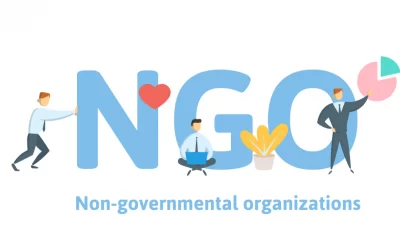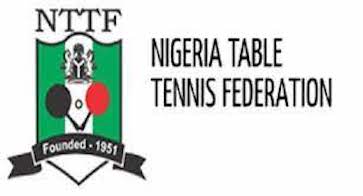BUSINESS
Riders to Pay More as Bolt Introduces 3% Booking Fee

Riders seeking e-hailing services will have to pay more on all rides
as Bolt introduced an additional 3 percent booking fee.
In a service update sent to customers on Wednesday, the company said
the booking fee was necessary due to an “increase in operating costs.”
With this, for every ride of N3,000, Bolt users will pay an extra fee
of N90, including a previous N20 flat rate.
Breakdown of Bolt fare for a ride.
Starting from December 8 (today), Bolt said the new booking fee will
be used to cover operational costs and “allow us to continue improving
features.”
“At Bolt, we’re committed to making sure Bolt is the most affordable
way to move around Nigeria,” the email reads.
“However, we also recognise changes in operating costs which can occur
as we work to keep you moving around reliably, safely, and affordably.
“From December 8th, 2021, we’re introducing a 3% booking fee on all
trips. This will be used to cover operational costs and allow us to
continue improving features to make Bolt the best way to move around.”
Speaking on the development, Emmanuel Ogbuchi, a banker, tagged the
increase as unnecessary.
“The costs are becoming increasingly too expensive that we riders are
seeing it as exploitation,” he said
“As an active bolt user, I’d say that this booking fee of 3 percent or
whatever is quite unnecessary and should be discarded.”
In April, Uber and Bolt drivers under the aegis of Professional
E-hailing Drivers and Private Owners Association (PEDPA) called on
e-hailing companies to increase their fares to reflect economic
realities, especially with the double-digit inflation.
BUSINESS
FCTA Setup Vetting Committees to Scrutinise Sale of Govt Properties

By Laide Akinboade, Abuja
The Federal Capital Territory Administration (FCTA), at the weekend set up vetting committees to scrutinise the sale of Federal Government houses in the FCT, and the titling of designated park plots, including the management of allied land parcels in Abuja.
This was contained in a statement by Assistant Director of Information and Customer Service, Badaru Yakassai, in Abuja.
The FCT Director of Land Administration, Chijioke Nwankwoeze, inaugurated the vetting committees in his office.
Nwakwoeze explained that the committees were established to implement ministerial directives “following the discovery of serious irregularities and infractions in the sale of Federal Government houses in the FCT.
“The Director added that the said irregularities and fractions discovered include deviation from approval mandate, improper verifications, late payments, inadequate documentations, poor interdepartmental coordination and other specific infractions,” the statement added”
He noted that the FCT Minister, Nyesom Wike, approved the constitution of the committees “with clear directives, mandates, and terms of reference, to ensure that all processes are completed within a reasonable time frame.”
Nwankwoeze added that the vetting team on the sale of government houses is expected “to restore order, accountability, and transparency in line with the original 2003–2005 monetisation and sales policy framework of the Federal Government.”
He further stated that a second vetting committee had been set up to handle the titling of designated park plots, with a mandate to align the activities of the Department of Parks and Recreation with the current land reform policies of the FCT Administration.
Nwankwoeze stated that the FCT Minister, Nyesom Wike, approved the constitution of the committees “with clear directives, mandates, and terms of reference, to ensure that all processes are completed within a reasonable time frame.”
Nwankwoeze added that the vetting team on the sale of government houses is expected “to restore order, accountability, and transparency in line with the original 2003–2005 monetisation and sales policy framework of the Federal Government.”
He further stated that a second vetting committee had been set up to handle the titling of designated park plots, with a mandate to align the activities of the Department of Parks and Recreation with the current land reform policies of the FCT Administration.
“The setting up of the vetting committees was a bold and irreversible step toward restoring sanity and public trust in the FCTA.
“He emphasised that the government has deployed machinery to put to rest all lingering issues surrounding the sales of the Federal Government’s houses and designated park plots in the territory,” the statement further read.
The director expressed confidence that the committees will sanitise the system and rebuild citizens’ trust in public land administration.
This is because the FCT Minister has the ‘political will’ to drive it to a logical conclusion, and this forms part of the aspirations of the ‘Renewed Hope Agenda’ of President Bola Ahmed Tinubu,” Nwankwoeze stated.
BUSINESS
Digital Bank PalmPay Gets Recognition

Torough David
Digital bank PalmPay has once again secured global recognition, earning a place on CNBC and Statista’s 2025 Top 300 Fintech Companies in the World list.
This marks the second consecutive year the fintech platform has been listed among the world’s most innovative and impactful financial technology firms, placing it alongside global giants such as Revolut, Nubank, and Ant Group.
In a statement on Tuesday, the Founding Chief Marketing Officer at PalmPay, Sofia Zab, described the recognition as a strong validation of the company’s commitment to financial inclusion across emerging markets.
“To be recognised as one of the world’s top fintech companies by CNBC and Statista is a powerful affirmation of our mission to build a more inclusive financial system,” she said.
Zab noted that PalmPay’s strategy combines cutting-edge technology with deep local distribution to meet the needs of underserved communities.
“Through a customer-first mindset, we’ve built Nigeria’s leading neobank,” she added.
PalmPay currently serves over 35 million registered users, processing up to 15 million transactions daily. In Nigeria, its core market, PalmPay operates as a full-service neobank, offering services such as transfers, bill payments, credit, savings, and insurance, all available through its user-friendly mobile app.
The company also maintains a nationwide network of over one million agents and merchant partners and provides POS and API-driven solutions for merchants and enterprise clients.
Group Chief Commercial Officer at PalmPay, Jiapei Yan, said the fintech platform is building a neobanking infrastructure that aligns with the realities of emerging markets.
“We are creating the infrastructure for a connected digital economy where people and businesses can thrive through reliable, inclusive financial tools,” Yan said.
He added that the CNBC and Statista ranking not only affirms PalmPay’s progress but also highlights the scale of opportunity in emerging markets.
PalmPay recently expanded into Tanzania and Bangladesh, using smartphone device financing as a gateway to digital financial services for new users in these regions.
“Our focus remains on closing financial access gaps for everyday consumers and businesses, while expanding the partner ecosystem that fuels our reach and impact,” Zab said.
Earlier this year, PalmPay was also ranked #2 overall and #1 in financial services on the Financial Times Africa’s Fastest-Growing Companies 2025 list. The ranking reflected the company’s rapid scale and market traction, based on revenue growth between 2020 and 2023.
BUSINESS
CBN’s Rates Hold Anticipated, New Strategies Important against Downsides – CPPE

The Centre for the Promotion of Private Enterprise (CPPE) said the decision of the Monetary Policy Committee (MPC) of the Central Bank of Nigeria (CBN) to hold the interest rates was anticipated.
Chief Executive Officer of CPPE, Dr. Muda Yusuf said this in an interview on Wednesday in Lagos.
Yusuf said that although the decisions of the MPC were not surprising, the apex bank and managers of the nation’s economy must evolve additional strategies, including trade policy shifts against inflation.
He was responding to the outcome of the 301st MMPC meeting.
The MPC retained the rates for the third consecutive time, holding the Monetary Policy Rate (MPR) at 27.
5 per cent.The Cash Reserve Ratio (CRR) was retained at 50 percent for deposit money banks and 16 per cent for merchant banks.
It also retained Liquidity Ratio at 30 per cent and the Asymmetric Corridor at +500/-100 basis points around the MPR.
Yusuf said that the outcome was anticipated based on current realities, adding that the decision had both positive and negative consequences for the nation’s economy.
He said it was expected that current rates would be maintained due to CBN’s consistent approach of not cutting rates until inflation significantly moderates.
He said that inspite of marginal deceleration in annual inflation to 22.22 per cent, month-on-month headline, food, and core inflation all increased in June.
According to him, the CBN cited inflationary trends coupled with persistent factors like high energy costs, insecurity, exchange rate volatility and logistics expenses as reasons for its decision.
He stressed the need for more affordable funds to boost economic growth and investment, noting that interest rates exceeding 30 per cent are highly prohibitive.
The CPPE boss, however, said that economic management involved trade-offs.
He said that CBN’s tight monetary stance, characterised by high interest rates, had successfully attracted an inflow of foreign exchange through portfolio investments.
Yusuf said that the influx of forex was a key positive outcome that justified CBN’s decision to maintain monetary tightness, even if it appears to hinder direct investment and growth.
He said that CBN’s decision had several implications, adding that financial instruments will continue to offer attractive returns, benefiting investors in these areas.
Yusuf said that the country needed factors that could bring down the cost of production, distribution, and the cost of importation of critical input for production.
“There are already some actions, we need more effective and impactful actions on insecurity, so that our food production can also be scaled up.
“These are some of the additional things that need to take place on the policy front to complement whatever the monetary policy authorities are doing.
“Clearly, monetary policy alone or monetary policy instruments alone are not sufficient to effectively tackle inflation,” he said.




























